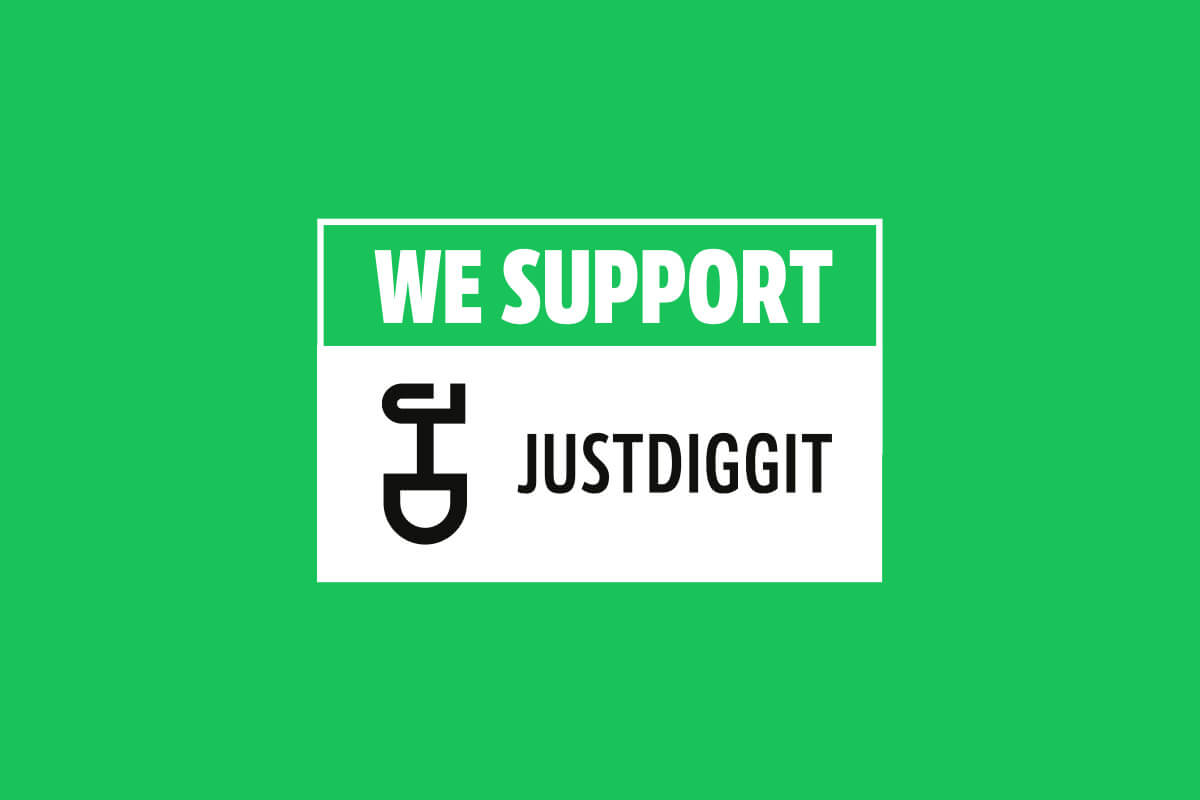As a logistics service provider, one thing is clear: We play an important part in supplying people, industry and commerce with the basics. We emit pollutants when providing our services. For example, every one of our trucks that travels on Europe’s roads emits carbon dioxide (CO2). We consume resources: water, electricity, air. That’s just how things have to be. Or is it? We asked ourselves where we stood in terms of sustainability and concluded that we can do a lot as a company – for example, investing in a modern fleet and working on a smaller carbon footprint. We need to look at the supply chain and our services from various perspectives – environmental, social and economic – if we want to achieve our sustainability goals. None of this will happen overnight. But we must start now. That is why we have joined the Justdiggit initiative, whose motto is “Cooling down the planet”. Together, we want to literally cool down the Earth in a worldwide network. That is why inTime Express Logistik is not participating as an individual German company but has joined ranks with its subsidiaries TLT Group and Servicios Ader from Spain in the European supply chain.

Renaturalizing parched land, bringing back life and combating climate change – these challenges are too big to tackle alone. That’s why Justdiggit relies on a worldwide network of activists, ambassadors and supporters. Justdiggit’s work meets eight of the United Nations’ Sustainable Development Goals. Where has change already begun? In many individual ecosystem restoration projects in Africa. Companies and non-governmental organizations (NGOs) around the world are involved in helping the “Mother Continent”. Justdiggit’s catchphrase is “Dig, Green, Cool” and describes how bare soil is regreened and vegetation is returned through cost-efficient nature-based methods. This creates new livelihoods for local people, improves biodiversity and pays dividends for the global climate because CO2 is absorbed from the atmosphere in large quantities. It’s a task that concerns us all. That is why we refer to “us”. The work done in the projects reduces the greenhouse effect and cools the planet. We have ten years to get this done – until 2030. Justdiggit’s experts estimate that natural restoration makes up 37% of the fight against climate change.
Restoration is key to what Justdiggit does. Bringing back vegetation prevents erosion, improves soil quality and cools the Earth by binding more CO2 from the atmosphere. The initiative employs various restoration methods. Ready for examples? Farmer-managed natural regeneration (FMNR) brings trees back to life. There are several million of them in Tanzania, although the local farmers call the method “Kisiki Hai”. That’s Swahili for “living stump”. It is more effective to allow shoots to grow from stumps than to plant new trees. Farmers elsewhere dig infiltration basins known as “bunds” for collecting rainwater. They are 2.5 meters long and 5 meters wide, making them about the size of an adult elephant. They give collected water time to infiltrate into the soil and restore the water balance. The water does not simply wash away dried soil. Seeds ensure that new plants grow in the bunds and revitalize the area around the bunds. The greater organic mass improves the nutrient content of the soil. The plant roots allow more water to percolate into the soil. In addition, the shade cast by the plants reduces the amount of water lost to evaporation. Trees and shrubs also stabilize upper soil layers. That prevents the loss of valuable natural soil in heavy rain. Using rainwater saves the users several billion liters of waters that would otherwise seep haphazardly into the ground.
Climate change has caused devastating droughts and crop failures, especially in Africa. Medium-term consequences include poverty and displacement. By regreening arid land, Justdiggit aims to help the local people and do something to protect the climate. In a way, Justdiggit revolves around helping people in Africa help themselves. Millions of these farmers and shepherds are turning formerly arid landscapes back into lush oases. They are primarily protecting their livelihoods, improving crop yields, combating poverty and preventing things that would otherwise drive them into the cities. They pay back the support they receive by working to preserve nature, cool the Earth and protect the global climate. How about a few examples? In Tanzania, Justdiggit has planted trees on an area four times the size of downtown Amsterdam using Kisiki Hai methods. In Kuku, Kenya, the initiators have dug more than 100,000 bunds and thus kicked off an extensive regreening process. Justdiggit has established six local grass seed banks. In these areas, Massai women grow, harvest and sell hay and seeds as animal feed, giving them a reliable source of income. In addition, 1,300 farmers were trained as “champion farmers”. Once they return to their villages, they will multiply Justdiggit’s impact by training up to 200,000 local farmers themselves.
regreening per year
Trees restored
CO2 sequestered